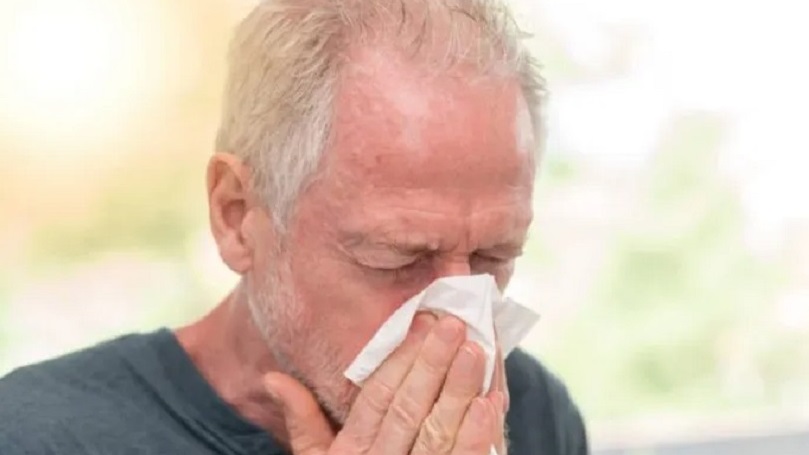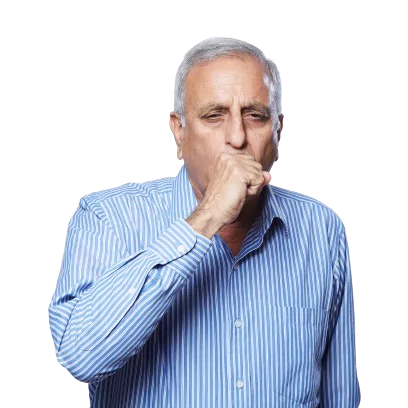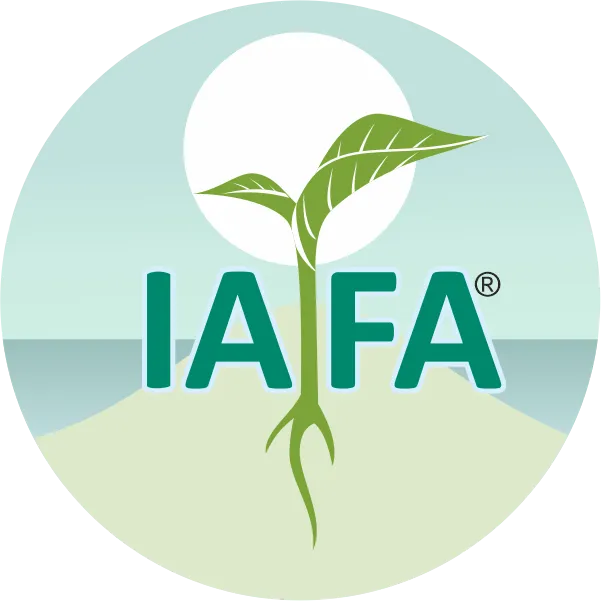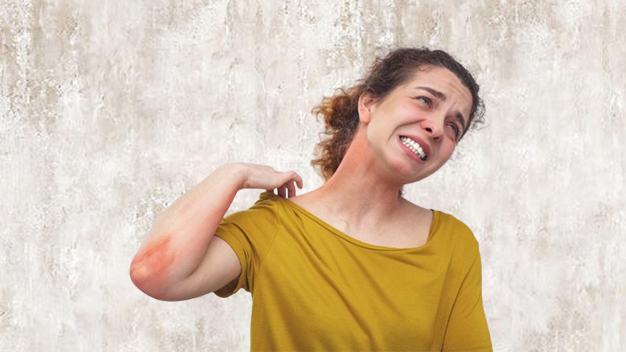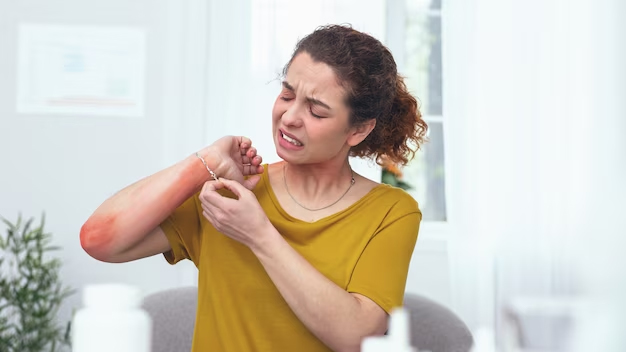On This Page
Overview
About Allergic Diseases in the Elderly
People 65 years old or more are the fastest growing segment of the population in the developed countries. The prevalence of allergic diseases in the elderly is estimated around 5-10%. Although allergic conditions are often thought of as childhood disorders, the disease often persists into older age and can occasionally make its initial appearance in the elderly. A number of factors in older subjects contribute to their risk for developing allergic related conditions. These include frailty, coexisting medical problems, memory issues and use of multiple prescribed and non-prescribed medications. age-related declines in serum total immunoglobulin E (IgE) and allergen sensitization in the elderly.
Clinical Features of Allergic Diseases in the Elderly
Most common allergies dealt with the elderly people include:-
1. Allergic Rhinitis
- Patients typically present with sneezing, pruritus and nasal congestion.
- Reduction of blood flow to the nose can lead to progressive nasal atrophy and clinical manifestations of atrophic rhinitis, and thinning and dryness of the mucosa make the elderly especially prone to rhinitis.
2. Asthma
- Frequently in old people asthma remains underdiagnosed and the percentage increases when respiratory symptoms are present.
- The severity of Asthma strongly correlates with increased reactive oxygen species (ROS) levels which contribute to the airway inflammation. Thus, asthmatic symptoms related to oxidative stress in aged patients may be significantly affected by age-associated ROS. Additionally, oxidative stress and the resulting cellular modifications are prevalent in asthmatic patients during aging.
3. Cutaneous Allergic Conditions
- Clinically, aged skin is characterized by atrophy, wrinkling, fragility, alterations in pigmentation, a higher frequency of benign and malignant tumors, and a greater tendency to xerosis. Altogether, these factors contribute to greater susceptibility to dermatologic diseases and pruritus, the most common skin complaint in patients over the age of 65 years, frequently associated with dry skin.
- Atopic dermatitis is much less common in the elderly compared with children and young adults. It is associated with seasonal mucosal allergies, asthma and positive prick tests to various allergens.
- Urticaria (with or without angioedema), especially chronic spontaneous urticaria, is quite common in elderly patients. Systemic diseases that may induce urticaria should be ruled out.
4. Food Allergy
- Regarding clinical manifestations, anaphylaxis is less common in older patients.
5. Drug Allergy
- Adverse drug reactions (ADR) are very common in frail elderly, cause clinically significant morbidity and mortality, the use of large numbers of medications by older patients increases the likelihood of harmful drug interactions, adverse drug reactions and drug allergies.
Ayurvedic View on Allergic Disease in Elderly
According to Ayurveda the lifespan of an individual is divided into three parts known as Vaya. These are:-
- Balavastha (childhood), which lasts up to the age of 16 years.
- Madhyavastha (young and middle age), which lasts from the age of 16 years to 60–70 years.
- Vriddhavastha or Jirnavastha (old age), which refers to the period after 60 or 70 years.
Thus, every person will pass through a period when various decaying changes will take place, and this time period is known as Vriddhavastha. This stage is characterized by decay in the body, Dhatu (various anatomical tissues), perception power of the Indriya (sensory and motor organs), potency, strength, speech, various mental and cognitive functions (e.g., memory, intellect, reception, retention, analytic ability, etc.). During this phase there is predominance of Vaayu Dosha (one of the three physiological body factors). The major physical changes seen at this time are wrinkling of skin, graying of hair, baldness, and a diminishing ability to do physical work.
Ayurvedic Reference of Allergic Disease in Elderly
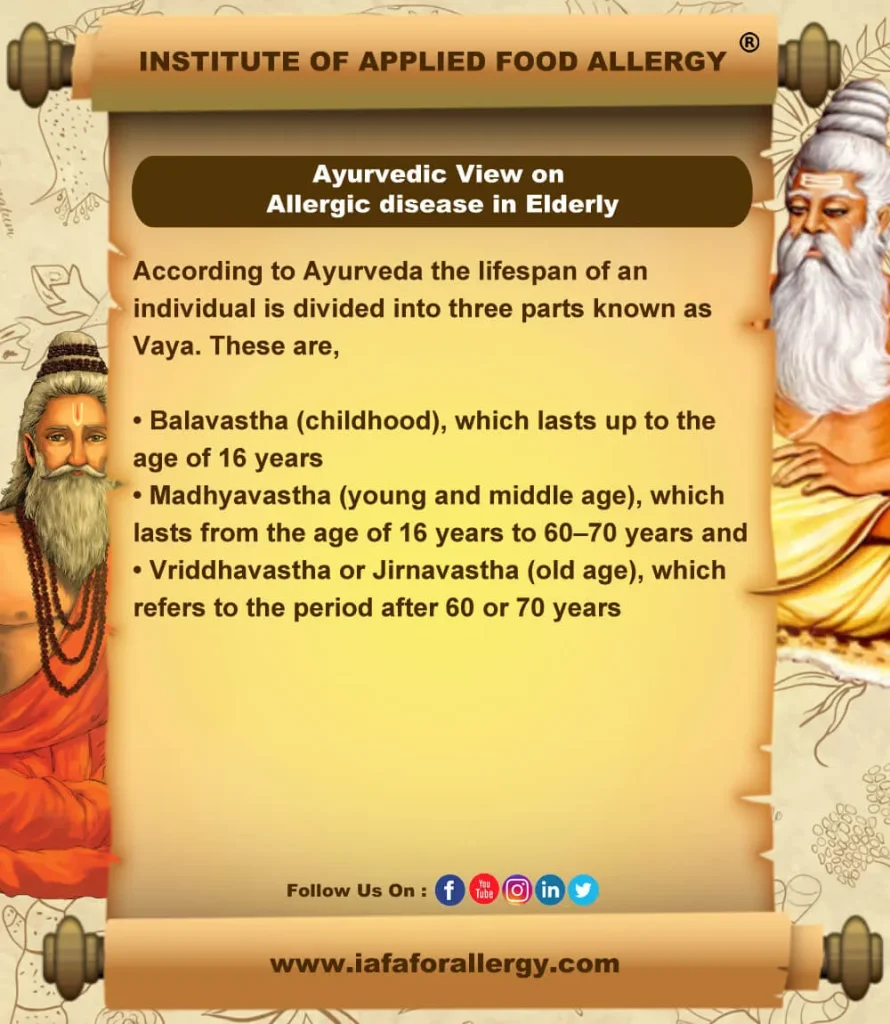
Ayurveda also incorporates both the preventive and curative aspects of human ailments and all the aspects resembles to the entire function of Vyadhikshamatva or immune power of a body. This can steer away from the origin and or progression of various diseases. Vyadhikshamatva is a broad concept comprising the whole modern understanding of immunology and other gross and subtle factors paying attention to the prevention and progression of diseases in human body.
Vyadhikshamatva merely depends upon the strength or Bala of an individual which is categorized into three as, Sahaja Yukthikritha and KalajaBala. Sahaja is the one we get from our birth itself, Yukthikritha is the one which is acquired during one’s own life.KalajaBala refers to the strength which is influenced by the age of the person and seasonal changes. Bala in turn depends on the ultimate essence of the body-Ojas and it keeps the vitality of the body.
Usually in children and elderly, due to immaturity and diminution of body components, there will be reduced strength in the body, which leads to a lower level of Vyadhikshamatwa. Thus they are more susceptible to diseases. Whereas, contrary to this, youth, due to maturity and proper nourishment, will have normal strength and thus normal vyadhikshamatwa also.
So in every disease occurring in elderly, it depends upon the Vyadhikshamatva of the individual and so is the allergic diseases also. Due to the weakening of immune system as age progresses, it will be difficult to attack all the foreign bodies invading the body.
Ayurveda recommends both preventive and curative aspects of treatment to stop the early progression.
Causes of Allergic Disease in Elderly Person
- Allergic diseases are mostly caused by inhalant allergens, in particular mold and pollens and climate changes modify their deployment and amount
- The onset of allergic diseases in older people is driven by immunosenescence, the changes of immune function observed with aging and tissue structure modifications typical of advanced age.
Preventive Aspects for Allergic Disease in Elderly
For this Ayurveda strongly advices that the rules related to the deeds and sequence of daily routine (Dincharya), diet and behavior related rules for different seasons of the year (Ritucharya) and behavioral etiquettes for being wise, active and peaceful person (Sadvritta) should be followed. Behavioral Rasayana called as Aachaar Rasayana is described in detail in Charaka Samhita. It mainly comprises of the etiquettes and rules of healthy lifestyle, food habits to be consciously practiced and measures for willful individual spiritual upliftment. The person who follows this code of conduct mentioned as Achaar Rasayana can easily maintain his immune health also.
Therapeutic Aspect for Allergic Disease in Elderly
All the disorders in elderly, children and pregnant women are difficult to treat according to Ayurveda. Especially diseases in elderly can only be managed; they can rarely be cured completely. As every disease in elderly has to be treated with a holistic approach, Ayurveda can prove a very rich resource of safe drugs with multidimensional effects for various chronic, debilitating disorders.
Concept of Rasayana
Ayurveda has tried to explain what exactly happens when the same person crosses two stages of life or age that is Childhood and Youth (Balya and Youvan) and enters the last, the third one – the Old age (Vriddha). The same food digested by the same body produces the same nourishing juices absorbed in the same way, gradually slows down its function of building up of tissues. Rasayana in Ayurveda plays a role in delaying the anti- ageing process and also helps in enhancing immune power of the body.

“Dr. Gupta’s IAFA is committed to deliver excellence in health care with care and compassion. Institute of Applied Food Allergy® provides outstanding treatment for all Allergic Diseases in Elderly People”.
Your health. Our mission!!! Reach Dr. Gupta’s IAFA for all your worries about your health.
– Dr. Sahil Gupta (B.A.M.S., M.H.A.)
Ayurvedic Allergy Specialist
CEO & Founder of IAFA®
At last, Easier Allergic Diseases in the Elderly Management

Trusted by
More than 90,000 Patients

Convenient
at-Home Treatments

9.2 / 10
Customer Satisfaction Score
Ayurvedic Treatment for Allergic Diseases in Elderly Person
Internal Medicines
Internal Medicines used in Ayurveda for enhancing Immunity and used in Allergic disorders in Elderly Person:-
- Haridrakhanda
- Taleesadi Churna
- Dashamoolakatutrayadi Kashaya
- Bharangyadi kwatha
- Indukantham kashayam
- Guluchyadi kashaya
- Drakshadi Kashaya
- Drakshavaleha
- Aravindasava
- Mahasudarshanghan vati
- Hingvadi vati
- Amritarishtam
- Vasakasava
- Aswagandharishtam
- Balarishtam
- Indukantam ghritam
- Dadimadi ghritham
- Guduchi satva
Rasayana Include:-
- Chyavanprash Rasayana
- Chitraka Haritaki Rasayana
- Agastya Haritaki Rasayana
- Vyaghri Haritaki Rasayana
- Ashwagandha Avaleha
- Brahma Rasayana
- Daily Use of Milk with Ghee (cup of milk with a teaspoon of ghee)
- Shilajeet Rasayana
- Khadiradi Rasayana
- Shatavari Siddha Ghrita
Single Herbs Used in Allergic Diseases in Elderly Person
- Pippali (Piper longum)
- Pippalimoola (Piper longum)
- Chavya (Piper chaba)
- Chitraka (Plumbago zeylanica)
- Sunthi (Zingiber officinale)
- Amlavetasa (Garcinia pedunculata)
- Maricha (Piper nigrum)
- Haridra (Curcuma longa)
- Kutaja (Holarrhena Antidysenterica)
- Bilwa (Aegle marmelos)
- Musta (Cyperus rotundus)
Pathya in Allergic Diseases in Elderly Person
- Eat freshly prepared warm food when hungry.
- Liquids – Instead of Tea, either of the following are advised.
- Herbal tea prepared from ½ inch ginger + 2 Black pepper + ¼ cinnamon or lemon grass, tulsi leaves in 2 cups boiled water reduce it to 1 Cup & add honey 1 teaspoon
- 1 cup hot cow’s milk + dry Ginger powder/Haridra ½ teaspoon
- Cereals – Shalishashtika (Old Rice) / Laja/ Godhuma (Wheat) / Yava (Barley)
- Fruits – Draksha (Vitisvinifera L.), Kapittha (Feronia limonia (Linn.)), Dadima (Punicagranatum Linn) can be taken.
- Condiments and spices: Cardamom/dry ginger/ black pepper/ long pepper/ garlic
Yoga in Allergic Diseases in Elderly Person
The following Yoga-Asanas can be practiced for 15 to 20 minutes to improves flexibility of the body and relieve mental stress
- Sukshmavyayama (warm up) loosening exercises for all joints
- Sitting postures like padmasana, Sukhasana, Vajrasana, Paschimottanasana
- Yogasana in supine position: Pawanmuktasana, Halasana, Matsyasana
- Yogasana in Prone position: Bhujangasana, Shalabhasana
- Relaxing postures: Shavasana, Makarasana
- Pranayama: Deep Breathing, Nadishodhana pranayama, Bhramari Pranayama 10 repetitions each
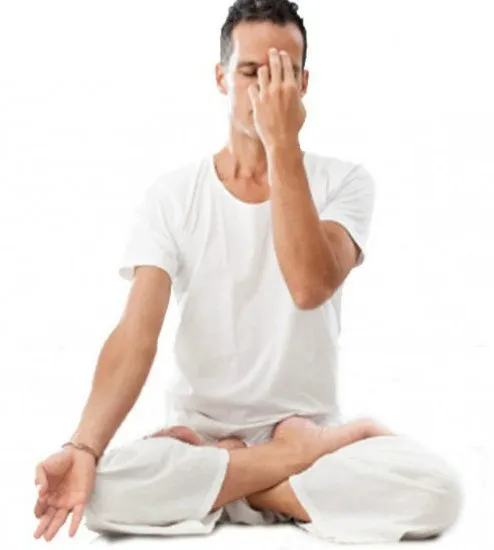
Frequently Asked Questions
Question: What is Allergic Disease in Elderly Person?
Answer : Any allergic disease which occurs in a person above 65 can be included under this either with a past history or new onset.
Question: What are the causes of Allergic disease in Elderly Person ?
Answer: Any cause which affects the immune system can lead to a allergic response, either acute or chronic.
Question: What is the Ayurvedic treatment for Allergic Disease in Elderly Person ?
Answer: Any kind of preventive or therapeutic aspect which increases the Vyadhikshamatva of a person can be used for the management.
Question: What causes allergies in elderly?
Answer: According to Ayurveda, weak agni or digestive fire results in indigestion and poorly digested food turns toxic causing the formation of ama that interferes with processes in the body.
Question: What is the Ayurvedic treatment of allergies in elderly?
Answer: Ayurvedic treatment of allergies include herbs and herbal remedies that have anti-inflammatory, anti-oxidant, immuno-modulatory properties that soothe skin irritations, respiratory tract allergies etc. by enhancing immunity of an individual.
Question: How to prevent allergic diseases in children?
Answer: For prevention of allergic disorders, Ayurveda strongly advises that the rules related to Dinacharya (rules related to the sequence of daily routine) and Ritucharya (diet and behaviour related rules for different seasons of the year) should be followed.
References
- Sharma PC, Yelne MB, Dennis TJ. Database on Medicinal Plants used in Ayurveda. Vol. 5. New Delhi: Central Council for Research in Ayurveda & Siddha, Government of India; 2004.
- Astang Samgraha with the commentary of Indu, Published by Central Council for research in Ayurveda and Siddha (CCRAS), New Delhi.
- Agnivesha. Charak Samhita commentary by Chakrapani. Varanasi. Chaukhambha Sanskrit Sansthan; Ch. Chikitsa 8/49-50.
Was this Page Helpful?
So IAFA Ayurvedic Management of Allergic Diseases in Elderly is Just 3 Steps Away!

01. Connect With Us
Share your history of illness or Book your appointment

02. Consult With Us
Dr. Gupta a certified Ayurvedic Allergist Consultant

03. Root Cause Treatment
Get an accurate diagnosis, medicines, diet & lifestyle change
Real Case Studies – Successfully Treated Patients
Real Case Studies of Successfully Treated Patients from All Around the World by IAFA Ayurveda®
-
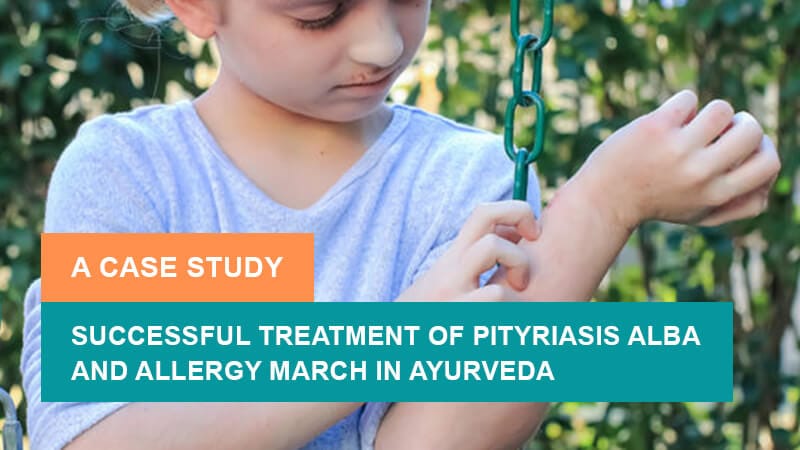
Successful Treatment of Pityriasis Alba and Allergy March in Ayurveda – A Case Study
It is a case study about successful treatment of Pityriasis Alba and…
-

Successful Treatment of Gallstones (Cholelithiasis) with Ayurvedic Medications – A Case Study
It is a case study about the successful treatment of Gallstones (Cholelithiasis)…
-
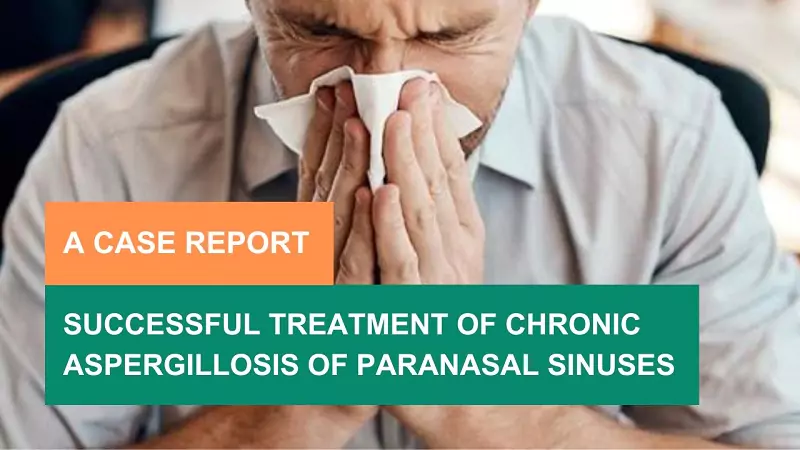
48-Year-Old Male Patient Got Relief from Chronic Aspergillosis of Paranasal Sinuses – A Case Study
Fungal infections can be treated with a high success rate by various…
-
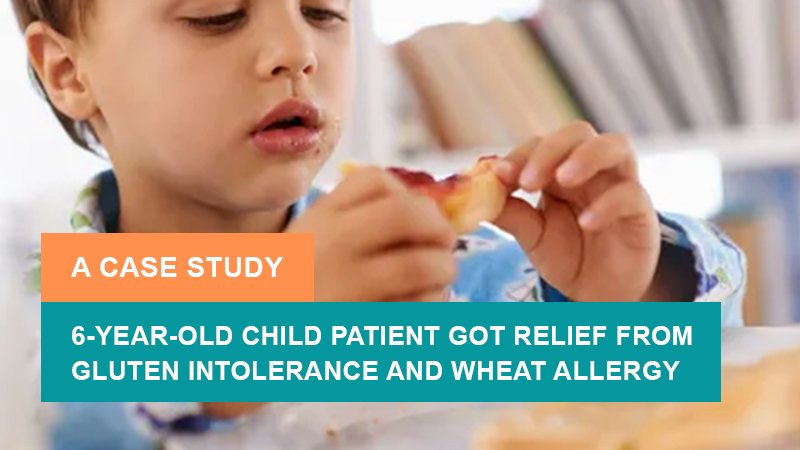
6-Year-Old Child Patient Got Relief from Gluten Intolerance and Wheat Allergy – A Case Study
It is a case study of a 6-year-old Child Patient who got…

